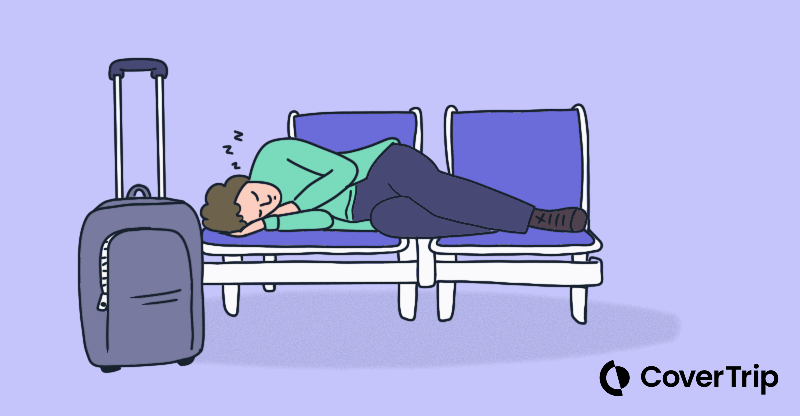Eliminate travel burnout with these steps
24 February 2023
Travel is fun, what’s this burnout? Actually, it’s a real thing. After you planned the trip of your dreams, you might be surprised on that trip to find yourself, or some of your trip mates, feeling anxious, unreasonable, and exhausted.
And you don’t have to be on a six-month trip to discover travel burnout.
Some travelers can reach burnout just trying to get to their destination. The packing, driving and parking, security, crowds, noise, and long periods of boring sitting – it quickly gets overwhelming. Other travelers don’t hit burnout until weeks of traveling.
Here’s what you need to know about travel burnout.

What is travel burnout?
The word burnout is defined as “mental and/or physical collapse due to overwork and stress.” The symptoms of travel burnout look much like non travel-related burnout and include:
- Feeling disengaged, negative, or anxious
- All levels of tired from worn out to exhausted
- Poor eating habits, from distracted binge eating to consuming all junk food
- Higher consumption of alcohol than normal
- Frustration, angry remarks, and short temper
It’s actually underrated and quite common.
Top causes of trip burnout
Now that you know what travel burnout looks like, you can look for what’s causing it. The top causes of travel burnout are:
- Not enough good sleep
- Too little exercise/movement
- Constant hurrying
- No breaks or downtime
Steps to handle travel burnout like a pro
Here’s how expert travelers handle burnout.
1. Do something ‘normal’
Take a morning to do whatever makes you feel like you’re home, whether it’s speaking your native language with someone or sitting by the pool with a good novel.
2. Don’t travel too fast
Traveling fast and covering a lot of ground so you can cram entire cities into a day, whole countries in a couple of days, and a region in less than a week is the perfect recipe for a high-stress, high-work situation.
If you travel slower, you can also take time for breaks or downtime. Not every day has to be cram-packed with a million attractions. It’s OK to spend some of your trip recharging meaningfully.
3. Make time for sleep and exercise
After you’ve gotten over the jet lag, get to bed semi-regularly and wake up when you usually do.
It’s hard, no almost impossible, to keep a regular exercise routine when you’re traveling. And yet, this is one of the most important things you can do for your mental and physical health. You’ll eat better and sleep better too.
Pro tip: Even if you’re always walking, set aside some time for stretching or yoga to balance things out.
4. Schedule solo time
When did you last spend multiple days with friends or family? Probably not since you were a kid and had less control of your schedule and time.
If you’re traveling with a group of friends or family (even your long-term partner), it can get difficult spending every waking moment interacting with and paying attention to a group. It will keep you sane and pleasant if you consider some time alone.
Think what an afternoon doing your own thing can do for your personal travel outlook. You’ll have something new to discuss when you meet for dinner.
Related topics
Damian Tysdal is the founder of CoverTrip, and is a licensed agent for travel insurance (MA 1883287). He believes travel insurance should be easier to understand, and started the first travel insurance blog in 2006.
